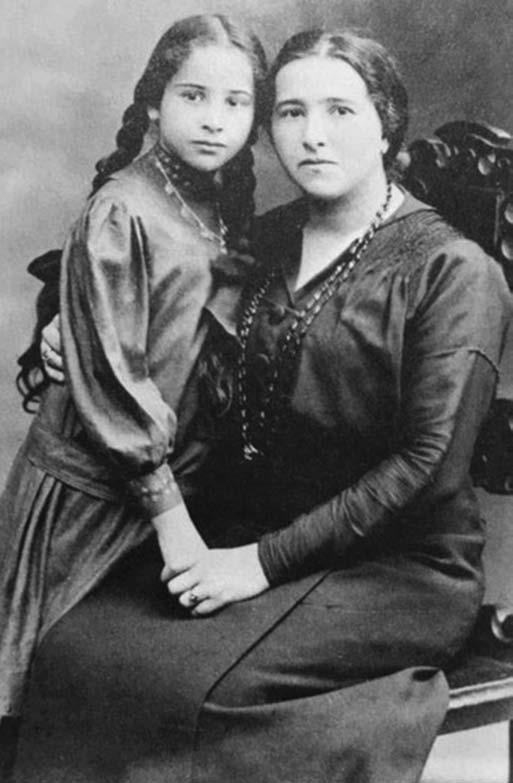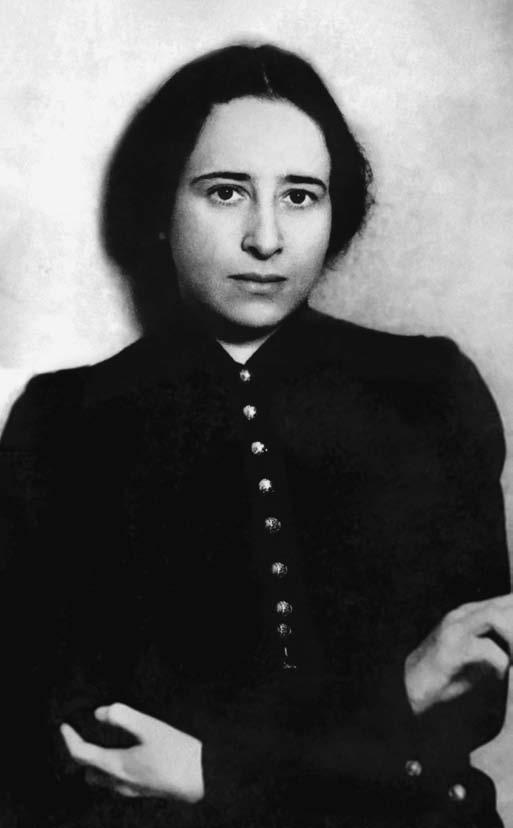Hannah Arendt: A Very Short Introduction Dana Villa
Visit to download the full and correct content document: https://ebookmass.com/product/hannah-arendt-a-very-short-introduction-dana-villa/
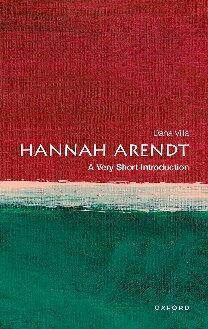
More products digital (pdf, epub, mobi) instant download maybe you interests ...

Hannah Arendt: A Very Short Introduction Dana Villa
https://ebookmass.com/product/hannah-arendt-a-very-shortintroduction-dana-villa/
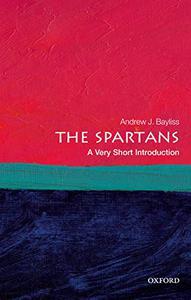
The Spartans: a Very Short Introduction Andrew J. Bayliss
https://ebookmass.com/product/the-spartans-a-very-shortintroduction-andrew-j-bayliss/

Nanotechnology: A Very Short Introduction Philip Moriarty
https://ebookmass.com/product/nanotechnology-a-very-shortintroduction-philip-moriarty/
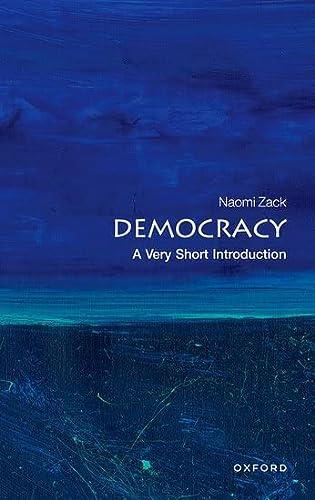
Democracy: A Very Short Introduction (Very Short Introductions) 2023rd Edition Zack
https://ebookmass.com/product/democracy-a-very-shortintroduction-very-short-introductions-2023rd-edition-zack/
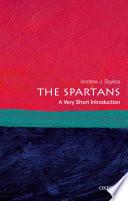
The Spartans: A Very Short Introduction Andrew J. Bayliss
https://ebookmass.com/product/the-spartans-a-very-shortintroduction-andrew-j-bayliss-2/

Globalization: A Very Short Introduction (Very Introductions) 4th Edition
https://ebookmass.com/product/globalization-a-very-shortintroduction-very-introductions-4th-edition/
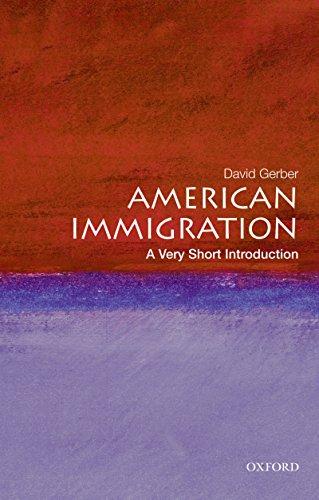
American Immigration: A Very Short Introduction (Very Short Introductions) 1st Edition, (Ebook PDF)
https://ebookmass.com/product/american-immigration-a-very-shortintroduction-very-short-introductions-1st-edition-ebook-pdf/
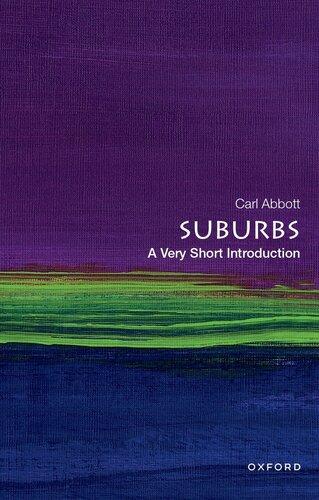
Suburbs: A Very Short Introduction Carl Abbott
https://ebookmass.com/product/suburbs-a-very-short-introductioncarl-abbott/
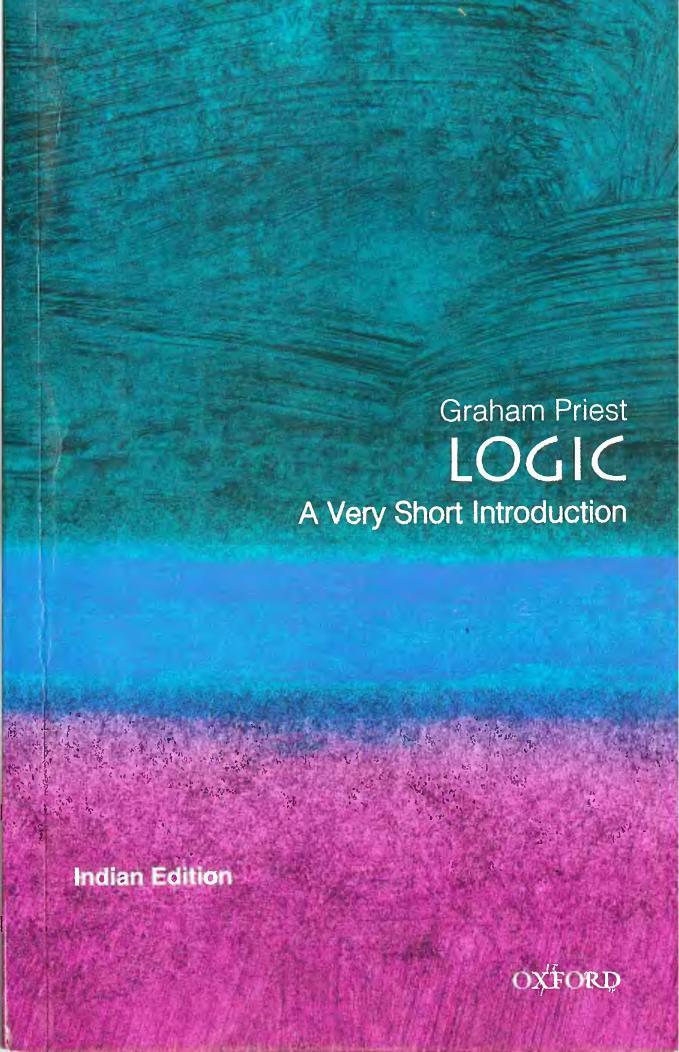
Logic: A Very Short Introduction Graham Priest
https://ebookmass.com/product/logic-a-very-short-introductiongraham-priest/
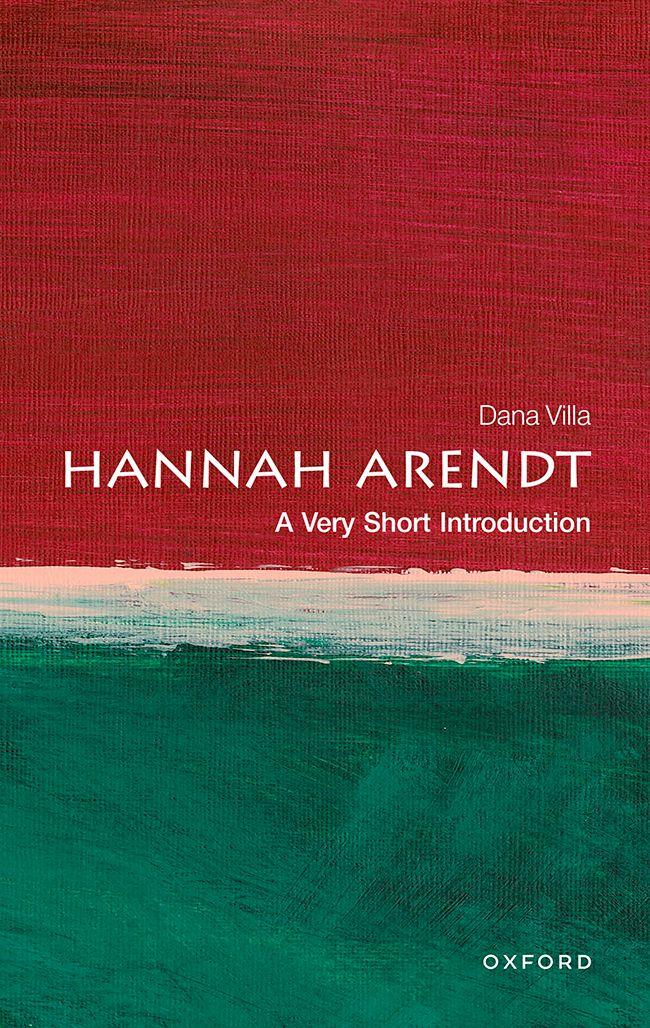
Hannah Arendt: A Very Short Introduction
VERY SHORT INTRODUCTIONS are for anyone wanting a stimulating and accessible way into a new subject. They are written by experts, and have been translated into more than 45 different languages. The series began in 1995, and now covers a wide variety of topics in every discipline. The VSI library currently contains over 700 volumes—a Very Short Introduction to everything from Psychology and Philosophy of Science to American History and Relativity—and continues to grow in every subject area.
Very Short Introductions available now:
ABOLITIONISM Richard S. Newman
THE ABRAHAMIC RELIGIONS
Charles L. Cohen
ACCOUNTING Christopher Nobes
ADOLESCENCE Peter K. Smith
THEODOR W. ADORNO
Andrew Bowie
ADVERTISING Winston Fletcher
AERIAL WARFARE Frank Ledwidge
AESTHETICS Bence Nanay
AFRICAN AMERICAN RELIGION
Eddie S. Glaude Jr
AFRICAN HISTORY John Parker and Richard Rathbone
AFRICAN POLITICS Ian Taylor
AFRICAN RELIGIONS
Jacob K. Olupona
AGEING Nancy A. Pachana
AGNOSTICISM Robin Le Poidevin
AGRICULTURE Paul Brassley and Richard Soffe
ALEXANDER THE GREAT
Hugh Bowden
ALGEBRA Peter M. Higgins
AMERICAN BUSINESS HISTORY
Walter A. Friedman
AMERICAN CULTURAL HISTORY
Eric Avila
AMERICAN FOREIGN RELATIONS
Andrew Preston
AMERICAN HISTORY
Paul S. Boyer
AMERICAN IMMIGRATION
David A. Gerber
AMERICAN INTELLECTUAL HISTORY
Jennifer Ratner-Rosenhagen
THE AMERICAN JUDICIAL SYSTEM
Charles L. Zelden
AMERICAN LEGAL HISTORY
G. Edward White
AMERICAN MILITARY HISTORY
Joseph T. Glatthaar
AMERICAN NAVAL HISTORY
Craig L. Symonds
AMERICAN POETRY David Caplan
AMERICAN POLITICAL HISTORY
Donald Critchlow
AMERICAN POLITICAL PARTIES AND ELECTIONS L. Sandy Maisel
AMERICAN POLITICS
Richard M. Valelly
THE AMERICAN PRESIDENCY
Charles O. Jones
THE AMERICAN REVOLUTION
Robert J. Allison
AMERICAN SLAVERY
Heather Andrea Williams
THE AMERICAN SOUTH
Charles Reagan Wilson
THE AMERICAN WEST Stephen Aron
AMERICAN WOMEN’S HISTORY
Susan Ware
AMPHIBIANS T. S. Kemp
ANAESTHESIA Aidan O’Donnell
ANALYTIC PHILOSOPHY
Michael Beaney
ANARCHISM Alex Prichard
ANCIENT ASSYRIA Karen Radner
ANCIENT EGYPT Ian Shaw
ANCIENT EGYPTIAN ART AND ARCHITECTURE Christina Riggs
ANCIENT GREECE Paul Cartledge
THE ANCIENT NEAR EAST
Amanda H. Podany
ANCIENT PHILOSOPHY Julia Annas
ANCIENT WARFARE Harry Sidebottom
ANGELS David Albert Jones
ANGLICANISM Mark Chapman
THE ANGLO-SAXON AGE John Blair
ANIMAL BEHAVIOUR
Tristram D. Wyatt
THE ANIMAL KINGDOM
Peter Holland
ANIMAL RIGHTS David DeGrazia
THE ANTARCTIC Klaus Dodds
ANTHROPOCENE Erle C. Ellis
ANTISEMITISM Steven Beller
ANXIETY Daniel Freeman and Jason Freeman
THE APOCRYPHAL GOSPELS
Paul Foster
APPLIED MATHEMATICS
Alain Goriely
THOMAS AQUINAS Fergus Kerr
ARBITRATION Thomas Schultz and Thomas Grant
ARCHAEOLOGY Paul Bahn
ARCHITECTURE Andrew Ballantyne
THE ARCTIC Klaus Dodds and Jamie Woodward
HANNAH ARENDT Dana Villa
ARISTOCRACY William Doyle
ARISTOTLE Jonathan Barnes
ART HISTORY Dana Arnold
ART THEORY Cynthia Freeland
ARTIFICIAL INTELLIGENCE
Margaret A. Boden
ASIAN AMERICAN HISTORY
Madeline Y. Hsu
ASTROBIOLOGY David C. Catling
ASTROPHYSICS James Binney
ATHEISM Julian Baggini
THE ATMOSPHERE Paul I. Palmer
AUGUSTINE Henry Chadwick
JANE AUSTEN Tom Keymer
AUSTRALIA Kenneth Morgan
AUTISM Uta Frith
AUTOBIOGRAPHY Laura Marcus
THE AVANT GARDE David Cottington
THE AZTECS Davíd Carrasco
BABYLONIA Trevor Bryce
BACTERIA Sebastian G. B. Amyes
BANKING John Goddard and John O. S. Wilson
BARTHES Jonathan Culler
THE BEATS David Sterritt
BEAUTY Roger Scruton
LUDWIG VAN BEETHOVEN
Mark Evan Bonds
BEHAVIOURAL ECONOMICS
Michelle Baddeley
BESTSELLERS John Sutherland
THE BIBLE John Riches
BIBLICAL ARCHAEOLOGY
Eric H. Cline
BIG DATA Dawn E. Holmes
BIOCHEMISTRY Mark Lorch
BIOGEOGRAPHY Mark V. Lomolino
BIOGRAPHY Hermione Lee
BIOMETRICS Michael Fairhurst
ELIZABETH BISHOP
Jonathan F. S. Post
BLACK HOLES Katherine Blundell
BLASPHEMY Yvonne Sherwood
BLOOD Chris Cooper
THE BLUES Elijah Wald
THE BODY Chris Shilling
NIELS BOHR J. L. Heilbron
THE BOOK OF COMMON PRAYER
Brian Cummings
THE BOOK OF MORMON
Terryl Givens
BORDERS Alexander C. Diener and Joshua Hagen
THE BRAIN Michael O’Shea
BRANDING Robert Jones
THE BRICS Andrew F. Cooper
THE BRITISH CONSTITUTION
Martin Loughlin
THE BRITISH EMPIRE Ashley Jackson
BRITISH POLITICS Tony Wright
BUDDHA Michael Carrithers
BUDDHISM Damien Keown
BUDDHIST ETHICS Damien Keown
BYZANTIUM Peter Sarris
CALVINISM Jon Balserak
ALBERT CAMUS Oliver Gloag
CANADA Donald Wright
CANCER Nicholas James
CAPITALISM James Fulcher
CATHOLICISM Gerald O’Collins
CAUSATION Stephen Mumford and Rani Lill Anjum
THE CELL Terence Allen and Graham Cowling
THE CELTS Barry Cunliffe
CHAOS Leonard Smith
GEOFFREY CHAUCER David Wallace
CHEMISTRY Peter Atkins
CHILD PSYCHOLOGY Usha Goswami
CHILDREN’S LITERATURE
Kimberley Reynolds
CHINESE LITERATURE Sabina Knight
CHOICE THEORY Michael Allingham
CHRISTIAN ART Beth Williamson
CHRISTIAN ETHICS D. Stephen Long
CHRISTIANITY Linda Woodhead
CIRCADIAN RHYTHMS
Russell Foster and Leon Kreitzman
CITIZENSHIP Richard Bellamy
CITY PLANNING Carl Abbott
CIVIL ENGINEERING
David Muir Wood
CLASSICAL LITERATURE William Allan
CLASSICAL MYTHOLOGY
Helen Morales
CLASSICS Mary Beard and John Henderson
CLAUSEWITZ Michael Howard
CLIMATE Mark Maslin
CLIMATE CHANGE Mark Maslin
CLINICAL PSYCHOLOGY
Susan Llewelyn and Katie Aafjes-van Doorn
COGNITIVE BEHAVIOURAL
THERAPY Freda McManus
COGNITIVE NEUROSCIENCE
Richard Passingham
THE COLD WAR Robert J. McMahon
COLONIAL AMERICA Alan Taylor
COLONIAL LATIN AMERICAN
LITERATURE Rolena Adorno
COMBINATORICS Robin Wilson
COMEDY Matthew Bevis
COMMUNISM Leslie Holmes
COMPARATIVE LITERATURE
Ben Hutchinson
COMPETITION AND ANTITRUST
LAW Ariel Ezrachi
COMPLEXITY John H. Holland
THE COMPUTER Darrel Ince
COMPUTER SCIENCE
Subrata Dasgupta
CONCENTRATION CAMPS
Dan Stone
CONFUCIANISM Daniel K. Gardner
THE CONQUISTADORS
Matthew Restall and Felipe Fernández-Armesto
CONSCIENCE Paul Strohm
CONSCIOUSNESS Susan Blackmore
CONTEMPORARY ART
Julian Stallabrass
CONTEMPORARY FICTION
Robert Eaglestone
CONTINENTAL PHILOSOPHY
Simon Critchley
COPERNICUS Owen Gingerich
CORAL REEFS Charles Sheppard
CORPORATE SOCIAL RESPONSIBILITY Jeremy Moon
CORRUPTION Leslie Holmes
COSMOLOGY Peter Coles
COUNTRY MUSIC Richard Carlin
CREATIVITY Vlad Glăveanu
CRIME FICTION Richard Bradford
CRIMINAL JUSTICE Julian V. Roberts
CRIMINOLOGY Tim Newburn
CRITICAL THEORY
Stephen Eric Bronner
THE CRUSADES Christopher Tyerman
CRYPTOGRAPHY Fred Piper and Sean Murphy
CRYSTALLOGRAPHY A. M. Glazer
THE CULTURAL REVOLUTION
Richard Curt Kraus
DADA AND SURREALISM
David Hopkins
DANTE Peter Hainsworth and David Robey
DARWIN Jonathan Howard
THE DEAD SEA SCROLLS
Timothy H. Lim
DECADENCE David Weir
DECOLONIZATION Dane Kennedy
DEMENTIA Kathleen Taylor
DEMOCRACY Bernard Crick
DEMOGRAPHY Sarah Harper
DEPRESSION Jan Scott and Mary Jane Tacchi
DERRIDA Simon Glendinning
DESCARTES Tom Sorell
DESERTS Nick Middleton
DESIGN John Heskett
DEVELOPMENT Ian Goldin
DEVELOPMENTAL BIOLOGY
Lewis Wolpert
THE DEVIL Darren Oldridge
DIASPORA Kevin Kenny
CHARLES DICKENS Jenny Hartley
DICTIONARIES Lynda Mugglestone
DINOSAURS David Norman
DIPLOMATIC HISTORY
Joseph M. Siracusa
DOCUMENTARY FILM
Patricia Aufderheide
DREAMING J. Allan Hobson
DRUGS Les Iversen
DRUIDS Barry Cunliffe
DYNASTY Jeroen Duindam
DYSLEXIA Margaret J. Snowling
EARLY MUSIC Thomas Forrest Kelly
THE EARTH Martin Redfern
EARTH SYSTEM SCIENCE Tim Lenton
ECOLOGY Jaboury Ghazoul
ECONOMICS Partha Dasgupta
EDUCATION Gary Thomas
EGYPTIAN MYTH Geraldine Pinch
EIGHTEENTH-CENTURY BRITAIN
Paul Langford
THE ELEMENTS Philip Ball
EMOTION Dylan Evans
EMPIRE Stephen Howe
EMPLOYMENT LAW David Cabrelli
ENERGY SYSTEMS Nick Jenkins
ENGELS Terrell Carver
ENGINEERING David Blockley
THE ENGLISH LANGUAGE
Simon Horobin
ENGLISH LITERATURE
Jonathan Bate
THE ENLIGHTENMENT
John Robertson
ENTREPRENEURSHIP Paul Westhead and Mike Wright
ENVIRONMENTAL ECONOMICS
Stephen Smith
ENVIRONMENTAL ETHICS
Robin Attfield
ENVIRONMENTAL LAW
Elizabeth Fisher
ENVIRONMENTAL POLITICS
Andrew Dobson
ENZYMES Paul Engel
EPICUREANISM Catherine Wilson
EPIDEMIOLOGY Rodolfo Saracci
ETHICS Simon Blackburn
ETHNOMUSICOLOGY Timothy Rice
THE ETRUSCANS Christopher Smith
EUGENICS Philippa Levine
THE EUROPEAN UNION
Simon Usherwood and John Pinder
EUROPEAN UNION LAW
Anthony Arnull
EVANGELICALISM John Stackhouse
EVIL Luke Russell
EVOLUTION Brian and Deborah Charlesworth
EXISTENTIALISM Thomas Flynn
EXPLORATION Stewart A. Weaver
EXTINCTION Paul B. Wignall
THE EYE Michael Land
FAIRY TALE Marina Warner
FAMILY LAW Jonathan Herring
MICHAEL FARADAY Frank A. J. L. James
FASCISM Kevin Passmore
FASHION Rebecca Arnold
FEDERALISM Mark J. Rozell and Clyde Wilcox
FEMINISM Margaret Walters
FILM Michael Wood
FILM MUSIC Kathryn Kalinak
FILM NOIR James Naremore
FIRE Andrew C. Scott
THE FIRST WORLD WAR
Michael Howard
FLUID MECHANICS Eric Lauga
FOLK MUSIC Mark Slobin
FOOD John Krebs
FORENSIC PSYCHOLOGY
David Canter
FORENSIC SCIENCE Jim Fraser
FORESTS Jaboury Ghazoul
FOSSILS Keith Thomson
FOUCAULT Gary Gutting
THE FOUNDING FATHERS
R. B. Bernstein
FRACTALS Kenneth Falconer
FREE SPEECH Nigel Warburton
FREE WILL Thomas Pink
FREEMASONRY Andreas Önnerfors
FRENCH LITERATURE John D. Lyons
FRENCH PHILOSOPHY
Stephen Gaukroger and Knox Peden
THE FRENCH REVOLUTION
William Doyle
FREUD Anthony Storr
FUNDAMENTALISM Malise Ruthven
FUNGI Nicholas P. Money
THE FUTURE Jennifer M. Gidley
GALAXIES John Gribbin
GALILEO Stillman Drake
GAME THEORY Ken Binmore
GANDHI Bhikhu Parekh
GARDEN HISTORY Gordon Campbell
GENES Jonathan Slack
GENIUS Andrew Robinson
GENOMICS John Archibald
GEOGRAPHY John Matthews and David Herbert
GEOLOGY Jan Zalasiewicz
GEOMETRY Maciej Dunajski
GEOPHYSICS William Lowrie
GEOPOLITICS Klaus Dodds
GERMAN LITERATURE Nicholas Boyle
GERMAN PHILOSOPHY
Andrew Bowie
THE GHETTO Bryan Cheyette
GLACIATION David J. A. Evans
GLOBAL CATASTROPHES Bill McGuire
GLOBAL ECONOMIC HISTORY
Robert C. Allen
GLOBAL ISLAM Nile Green
GLOBALIZATION Manfred B. Steger
GOD John Bowker
GÖDEL’S THEOREM A. W. Moore
GOETHE Ritchie Robertson
THE GOTHIC Nick Groom
GOVERNANCE Mark Bevir
GRAVITY Timothy Clifton
THE GREAT DEPRESSION AND THE NEW DEAL Eric Rauchway
HABEAS CORPUS Amanda Tyler
HABERMAS James Gordon Finlayson
THE HABSBURG EMPIRE
Martyn Rady
HAPPINESS Daniel M. Haybron
THE HARLEM RENAISSANCE
Cheryl A. Wall
THE HEBREW BIBLE AS LITERATURE Tod Linafelt
HEGEL Peter Singer
HEIDEGGER Michael Inwood
THE HELLENISTIC AGE
Peter Thonemann
HEREDITY John Waller
HERMENEUTICS Jens Zimmermann
HERODOTUS Jennifer T. Roberts
HIEROGLYPHS Penelope Wilson
HINDUISM Kim Knott
HISTORY John H. Arnold
THE HISTORY OF ASTRONOMY
Michael Hoskin
THE HISTORY OF CHEMISTRY
William H. Brock
THE HISTORY OF CHILDHOOD
James Marten
THE HISTORY OF CINEMA
Geoffrey Nowell-Smith
THE HISTORY OF COMPUTING
Doron Swade
THE HISTORY OF LIFE
Michael Benton
THE HISTORY OF MATHEMATICS
Jacqueline Stedall
THE HISTORY OF MEDICINE
William Bynum
THE HISTORY OF PHYSICS
J. L. Heilbron
THE HISTORY OF POLITICAL
THOUGHT Richard Whatmore
THE HISTORY OF TIME
Leofranc Holford-Strevens
HIV AND AIDS Alan Whiteside
HOBBES Richard Tuck
HOLLYWOOD Peter Decherney
THE HOLY ROMAN EMPIRE
Joachim Whaley
HOME Michael Allen Fox
HOMER Barbara Graziosi
HORMONES Martin Luck
HORROR Darryl Jones
HUMAN ANATOMY
Leslie Klenerman
HUMAN EVOLUTION Bernard Wood
HUMAN PHYSIOLOGY
Jamie A. Davies
HUMAN RESOURCE
MANAGEMENT Adrian Wilkinson
HUMAN RIGHTS Andrew Clapham
HUMANISM Stephen Law
HUME James A. Harris
HUMOUR Noël Carroll
THE ICE AGE Jamie Woodward
IDENTITY Florian Coulmas
IDEOLOGY Michael Freeden
THE IMMUNE SYSTEM
Paul Klenerman
INDIAN CINEMA Ashish Rajadhyaksha
INDIAN PHILOSOPHY Sue Hamilton
THE INDUSTRIAL REVOLUTION
Robert C. Allen
INFECTIOUS DISEASE Marta L. Wayne and Benjamin M. Bolker
INFINITY Ian Stewart
INFORMATION Luciano Floridi
INNOVATION Mark Dodgson and David Gann
INTELLECTUAL PROPERTY
Siva Vaidhyanathan
INTELLIGENCE Ian J. Deary
INTERNATIONAL LAW Vaughan Lowe
INTERNATIONAL MIGRATION
Khalid Koser
INTERNATIONAL RELATIONS
Christian Reus-Smit
INTERNATIONAL SECURITY
Christopher S. Browning
INSECTS Simon Leather
IRAN Ali M. Ansari
ISLAM Malise Ruthven
ISLAMIC HISTORY Adam Silverstein
ISLAMIC LAW Mashood A. Baderin
ISOTOPES Rob Ellam
ITALIAN LITERATURE
Peter Hainsworth and David Robey
HENRY JAMES Susan L. Mizruchi
JESUS Richard Bauckham
JEWISH HISTORY David N. Myers
JEWISH LITERATURE Ilan Stavans
JOURNALISM Ian Hargreaves
JAMES JOYCE Colin MacCabe
JUDAISM Norman Solomon
JUNG Anthony Stevens
KABBALAH Joseph Dan
KAFKA Ritchie Robertson
KANT Roger Scruton
KEYNES Robert Skidelsky
KIERKEGAARD Patrick Gardiner
KNOWLEDGE Jennifer Nagel
THE KORAN Michael Cook
KOREA Michael J. Seth
LAKES Warwick F. Vincent
LANDSCAPE ARCHITECTURE
Ian H. Thompson
LANDSCAPES AND GEOMORPHOLOGY
Andrew Goudie and Heather Viles
LANGUAGES Stephen R. Anderson
LATE ANTIQUITY Gillian Clark
LAW Raymond Wacks
THE LAWS OF THERMODYNAMICS
Peter Atkins
LEADERSHIP Keith Grint
LEARNING Mark Haselgrove
LEIBNIZ Maria Rosa Antognazza
C. S. LEWIS James Como
LIBERALISM Michael Freeden
LIGHT Ian Walmsley
LINCOLN Allen C. Guelzo
LINGUISTICS Peter Matthews
LITERARY THEORY Jonathan Culler
LOCKE John Dunn
LOGIC Graham Priest
LOVE Ronald de Sousa
MARTIN LUTHER Scott H. Hendrix
MACHIAVELLI Quentin Skinner
MADNESS Andrew Scull
MAGIC Owen Davies
MAGNA CARTA Nicholas Vincent
MAGNETISM Stephen Blundell
MALTHUS Donald Winch
MAMMALS T. S. Kemp
MANAGEMENT John Hendry
NELSON MANDELA Elleke Boehmer
MAO Delia Davin
MARINE BIOLOGY Philip V. Mladenov
MARKETING
Kenneth Le Meunier-FitzHugh
THE MARQUIS DE SADE John Phillips
MARTYRDOM Jolyon Mitchell
MARX Peter Singer
MATERIALS Christopher Hall
MATHEMATICAL FINANCE
Mark H. A. Davis
MATHEMATICS Timothy Gowers
MATTER Geoff Cottrell
THE MAYA Matthew Restall and Amara Solari
THE MEANING OF LIFE
Terry Eagleton
MEASUREMENT David Hand
MEDICAL ETHICS Michael Dunn and Tony Hope
MEDICAL LAW Charles Foster
MEDIEVAL BRITAIN John Gillingham and Ralph A. Griffiths
MEDIEVAL LITERATURE
Elaine Treharne
MEDIEVAL PHILOSOPHY
John Marenbon
MEMORY Jonathan K. Foster
METAPHYSICS Stephen Mumford
METHODISM William J. Abraham
THE MEXICAN REVOLUTION
Alan Knight
MICROBIOLOGY Nicholas P. Money
MICROECONOMICS Avinash Dixit
MICROSCOPY Terence Allen
THE MIDDLE AGES Miri Rubin
MILITARY JUSTICE Eugene R. Fidell
MILITARY STRATEGY
Antulio J. Echevarria II
JOHN STUART MILL Gregory Claeys
MINERALS David Vaughan
MIRACLES Yujin Nagasawa
MODERN ARCHITECTURE
Adam Sharr
MODERN ART David Cottington
MODERN BRAZIL Anthony W. Pereira
MODERN CHINA Rana Mitter
MODERN DRAMA
Kirsten E. Shepherd-Barr
MODERN FRANCE
Vanessa R. Schwartz
MODERN INDIA Craig Jeffrey
MODERN IRELAND Senia Pašeta
MODERN ITALY Anna Cento Bull
MODERN JAPAN
Christopher Goto-Jones
MODERN LATIN AMERICAN LITERATURE
Roberto González Echevarría
MODERN WAR Richard English
MODERNISM Christopher Butler
MOLECULAR BIOLOGY Aysha Divan and Janice A. Royds
MOLECULES
Philip Ball
MONASTICISM Stephen J. Davis
THE MONGOLS Morris Rossabi
MONTAIGNE William M. Hamlin
MOONS David A. Rothery
MORMONISM
Richard Lyman Bushman
MOUNTAINS Martin F. Price
MUHAMMAD Jonathan A. C. Brown
MULTICULTURALISM Ali Rattansi
MULTILINGUALISM John C. Maher
MUSIC Nicholas Cook
MUSIC AND TECHNOLOGY
Mark Katz
MYTH Robert A. Segal
NAPOLEON David Bell
THE NAPOLEONIC WARS
Mike Rapport
NATIONALISM Steven Grosby
NATIVE AMERICAN LITERATURE
Sean Teuton
NAVIGATION Jim Bennett
NAZI GERMANY Jane Caplan
NEGOTIATION Carrie Menkel-Meadow
NEOLIBERALISM Manfred B. Steger and Ravi K. Roy
NETWORKS Guido Caldarelli and Michele Catanzaro
THE NEW TESTAMENT
Luke Timothy Johnson
THE NEW TESTAMENT AS LITERATURE Kyle Keefer
NEWTON Robert Iliffe
NIETZSCHE Michael Tanner
NINETEENTH-CENTURY BRITAIN
Christopher Harvie and H. C. G. Matthew
THE NORMAN CONQUEST
George Garnett
NORTH AMERICAN INDIANS
Theda Perdue and Michael D. Green
NORTHERN IRELAND
Marc Mulholland
NOTHING Frank Close
NUCLEAR PHYSICS Frank Close
NUCLEAR POWER Maxwell Irvine
NUCLEAR WEAPONS
Joseph M. Siracusa
NUMBER THEORY Robin Wilson
NUMBERS Peter M. Higgins
NUTRITION David A. Bender
OBJECTIVITY Stephen Gaukroger
OCEANS Dorrik Stow
THE OLD TESTAMENT
Michael D. Coogan
THE ORCHESTRA D. Kern Holoman
ORGANIC CHEMISTRY
Graham Patrick
ORGANIZATIONS Mary Jo Hatch
ORGANIZED CRIME
Georgios A. Antonopoulos and Georgios Papanicolaou
ORTHODOX CHRISTIANITY
A. Edward Siecienski
OVID Llewelyn Morgan
PAGANISM Owen Davies
PAKISTAN Pippa Virdee
THE PALESTINIAN-ISRAELI
CONFLICT Martin Bunton
PANDEMICS Christian W. McMillen
PARTICLE PHYSICS Frank Close
PAUL E. P. Sanders
IVAN PAVLOV Daniel P. Todes
PEACE Oliver P. Richmond
PENTECOSTALISM William K. Kay
PERCEPTION Brian Rogers
THE PERIODIC TABLE Eric R. Scerri
PHILOSOPHICAL METHOD
Timothy Williamson
PHILOSOPHY Edward Craig
PHILOSOPHY IN THE ISLAMIC
WORLD Peter Adamson
PHILOSOPHY OF BIOLOGY
Samir Okasha
PHILOSOPHY OF LAW
Raymond Wacks
PHILOSOPHY OF MIND
Barbara Gail Montero
PHILOSOPHY OF PHYSICS
David Wallace
PHILOSOPHY OF SCIENCE Samir Okasha
PHILOSOPHY OF RELIGION
Tim Bayne
PHOTOGRAPHY Steve Edwards
PHYSICAL CHEMISTRY
Peter Atkins
PHYSICS Sidney Perkowitz
PILGRIMAGE Ian Reader
PLAGUE Paul Slack
PLANETARY SYSTEMS
Raymond T. Pierrehumbert
PLANETS David A. Rothery
PLANTS Timothy Walker
PLATE TECTONICS Peter Molnar
PLATO Julia Annas
POETRY Bernard O’Donoghue
POLITICAL PHILOSOPHY David Miller
POLITICS Kenneth Minogue
POLYGAMY Sarah M. S. Pearsall
POPULISM Cas Mudde and Cristóbal Rovira Kaltwasser
POSTCOLONIALISM Robert Young
POSTMODERNISM Christopher Butler
POSTSTRUCTURALISM
Catherine Belsey
POVERTY Philip N. Jefferson
PREHISTORY Chris Gosden
PRESOCRATIC PHILOSOPHY
Catherine Osborne
PRIVACY Raymond Wacks
PROBABILITY John Haigh
PROGRESSIVISM Walter Nugent
PROHIBITION W. J. Rorabaugh
PROJECTS Andrew Davies
PROTESTANTISM Mark A. Noll
PSYCHIATRY Tom Burns
PSYCHOANALYSIS Daniel Pick
PSYCHOLOGY Gillian Butler and Freda McManus
PSYCHOLOGY OF MUSIC Elizabeth Hellmuth Margulis
PSYCHOPATHY Essi Viding
PSYCHOTHERAPY Tom Burns and Eva Burns-Lundgren
PUBLIC ADMINISTRATION
Stella Z. Theodoulou and Ravi K. Roy
PUBLIC HEALTH Virginia Berridge
PURITANISM Francis J. Bremer
THE QUAKERS Pink Dandelion
QUANTUM THEORY
John Polkinghorne
RACISM Ali Rattansi
RADIOACTIVITY Claudio Tuniz
RASTAFARI Ennis B. Edmonds
READING Belinda Jack
THE REAGAN REVOLUTION Gil Troy
REALITY Jan Westerhoff
RECONSTRUCTION Allen C. Guelzo
THE REFORMATION Peter Marshall
REFUGEES Gil Loescher
RELATIVITY Russell Stannard
RELIGION Thomas A. Tweed
RELIGION IN AMERICA Timothy Beal
THE RENAISSANCE Jerry Brotton
RENAISSANCE ART
Geraldine A. Johnson
RENEWABLE ENERGY Nick Jelley
REPTILES T. S. Kemp
REVOLUTIONS Jack A. Goldstone
RHETORIC Richard Toye
RISK Baruch Fischhoff and John Kadvany
RITUAL Barry Stephenson
RIVERS Nick Middleton
ROBOTICS Alan Winfield
ROCKS Jan Zalasiewicz
ROMAN BRITAIN Peter Salway
THE ROMAN EMPIRE
Christopher Kelly
THE ROMAN REPUBLIC
David M. Gwynn
ROMANTICISM Michael Ferber
ROUSSEAU Robert Wokler
RUSSELL A. C. Grayling
THE RUSSIAN ECONOMY
Richard Connolly
RUSSIAN HISTORY Geoffrey Hosking
RUSSIAN LITERATURE Catriona Kelly
THE RUSSIAN REVOLUTION
S. A. Smith
SAINTS Simon Yarrow
SAMURAI Michael Wert
SAVANNAS Peter A. Furley
SCEPTICISM Duncan Pritchard
SCHIZOPHRENIA Chris Frith and Eve Johnstone
SCHOPENHAUER
Christopher Janaway
SCIENCE AND RELIGION
Thomas Dixon and Adam R. Shapiro
SCIENCE FICTION David Seed
THE SCIENTIFIC REVOLUTION
Lawrence M. Principe
SCOTLAND Rab Houston
SECULARISM Andrew Copson
SEXUAL SELECTION Marlene Zuk and Leigh W. Simmons
SEXUALITY Véronique Mottier
WILLIAM SHAKESPEARE Stanley Wells
SHAKESPEARE’S COMEDIES
Bart van Es
SHAKESPEARE’S SONNETS AND POEMS Jonathan F. S. Post
SHAKESPEARE’S TRAGEDIES
Stanley Wells
GEORGE BERNARD SHAW
Christopher Wixson
MARY SHELLEY Charlotte Gordon
THE SHORT STORY Andrew Kahn
SIKHISM Eleanor Nesbitt
SILENT FILM Donna Kornhaber
THE SILK ROAD James A. Millward
SLANG Jonathon Green
SLEEP Steven W. Lockley and Russell G. Foster
SMELL Matthew Cobb
ADAM SMITH Christopher J. Berry
SOCIAL AND CULTURAL ANTHROPOLOGY
John Monaghan and Peter Just
SOCIAL PSYCHOLOGY Richard J. Crisp
SOCIAL WORK Sally Holland and Jonathan Scourfield
SOCIALISM Michael Newman
SOCIOLINGUISTICS John Edwards
SOCIOLOGY Steve Bruce
SOCRATES C. C. W. Taylor
SOFT MATTER Tom McLeish
SOUND Mike Goldsmith
SOUTHEAST ASIA James R. Rush
THE SOVIET UNION Stephen Lovell
THE SPANISH CIVIL WAR
Helen Graham
SPANISH LITERATURE Jo Labanyi
THE SPARTANS Andrew Bayliss
SPINOZA Roger Scruton
SPIRITUALITY Philip Sheldrake
SPORT Mike Cronin
STARS Andrew King
STATISTICS David J. Hand
STEM CELLS Jonathan Slack
STOICISM Brad Inwood
STRUCTURAL ENGINEERING
David Blockley
STUART BRITAIN John Morrill
THE SUN Philip Judge
SUPERCONDUCTIVITY
Stephen Blundell
SUPERSTITION Stuart Vyse
SYMMETRY Ian Stewart
SYNAESTHESIA Julia Simner
SYNTHETIC BIOLOGY Jamie A. Davies
SYSTEMS BIOLOGY Eberhard O. Voit
TAXATION Stephen Smith
TEETH Peter S. Ungar
TELESCOPES Geoff Cottrell
TERRORISM Charles Townshend
THEATRE Marvin Carlson
THEOLOGY David F. Ford
THINKING AND REASONING
Jonathan St B. T. Evans
THOUGHT Tim Bayne
TIBETAN BUDDHISM
Matthew T. Kapstein
TIDES David George Bowers and Emyr Martyn Roberts
TIME Jenann Ismael
TOCQUEVILLE Harvey C. Mansfield
LEO TOLSTOY Liza Knapp
TOPOLOGY Richard Earl
TRAGEDY Adrian Poole
TRANSLATION Matthew Reynolds
THE TREATY OF VERSAILLES
Michael S. Neiberg
TRIGONOMETRY Glen Van Brummelen
THE TROJAN WAR Eric H. Cline
TRUST Katherine Hawley
THE TUDORS John Guy
TWENTIETH-CENTURY BRITAIN
Kenneth O. Morgan
TYPOGRAPHY Paul Luna
THE UNITED NATIONS
Jussi M. Hanhimäki
UNIVERSITIES AND COLLEGES
David Palfreyman and Paul Temple
THE U.S. CIVIL WAR Louis P. Masur
THE U.S. CONGRESS Donald A. Ritchie
THE U.S. CONSTITUTION
David J. Bodenhamer
Available soon:
MICROBIOMES Angela E. Douglas
ANSELM Thomas Williams
ANCIENT GREEK AND ROMAN SCIENCE
Liba Taub
ADDICTION Keith Humphreys
THE U.S. SUPREME COURT
Linda Greenhouse
UTILITARIANISM
Katarzyna de Lazari-Radek and Peter Singer
UTOPIANISM Lyman Tower Sargent
VETERINARY SCIENCE James Yeates
THE VIKINGS Julian D. Richards
VIOLENCE Philip Dwyer
THE VIRGIN MARY
Mary Joan Winn Leith
THE VIRTUES Craig A. Boyd and Kevin Timpe
VIRUSES Dorothy H. Crawford
VOLCANOES Michael J. Branney and Jan Zalasiewicz
VOLTAIRE Nicholas Cronk
WAR AND RELIGION Jolyon Mitchell and Joshua Rey
WAR AND TECHNOLOGY Alex Roland
WATER John Finney
WAVES Mike Goldsmith
WEATHER Storm Dunlop
THE WELFARE STATE David Garland
WITCHCRAFT Malcolm Gaskill
WITTGENSTEIN A. C. Grayling
WORK Stephen Fineman
WORLD MUSIC Philip Bohlman
WORLD MYTHOLOGY
David Leeming
THE WORLD TRADE
ORGANIZATION Amrita Narlikar
WORLD WAR II Gerhard L. Weinberg
WRITING AND SCRIPT
Andrew Robinson
ZIONISM Michael Stanislawski
ÉMILE ZOLA Brian Nelson
VATICAN II Shaun Blanchard & Stephen Bullivant
OBSERVATIONAL ASTRONOMY
Geoff Cottrell
MATHEMATICAL ANALYSIS
Richard Earl

